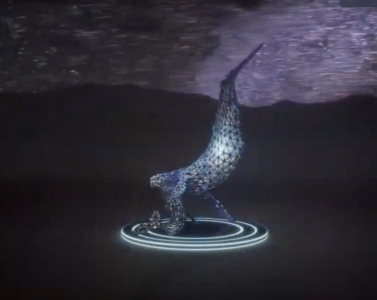The Barber Brief is an independent e-newsletter and blog written by Dr. Alicia Barber on the Substack platform. It is reposted by This Is Reno with her permission.
What good is innovation without accuracy?
By Alicia Barber, The Barber Brief
Fall is in the air, and so it seems are the winds of political change. Not only is campaigning for the upcoming midterm elections in full swing, but the news dropped on Friday that Ward 3 Reno City Councilmember Oscar Delgado has resigned. City Council will hold a special meeting on September 29 to decide whether to replace him via special election or appointment, as they just did when selecting Kathleen Taylor for Ward 5. If you want to weigh in on that decision, Thursday’s agenda is posted here. And if you are so inclined, you may want to refer back to my August 24 post, “Exercise Your Right to Representation,” which lists some of the roles that Councilmembers play in the development sphere, in addition to their many other duties.
Also swirling in the air is talk of Reno’s City Register of Historic Places (the “Register”), which in a broad sense is welcome news. Speaking as a former three-term commissioner (and chair) of Reno’s Historical Resources Commission (HRC), it was long our goal to promote the Register and help increase awareness of what it is, what it does, and why it should be expanded. The specific reason it’s in the news, however, underscores one of my consistent arguments in the Brief: that it is imperative for City projects in specific fields to be undertaken in close consultation with the citizen commissions dedicated to them.
As this latest example demonstrates, such close consultation is not just a courtesy but an absolute necessity in areas where City staff and elected officials simply do not possess the expertise to produce the best (or even a good) result. Let’s discuss.
The “Biggest Little Blockchain”
In case you missed it, the City of Reno officially launched the ”Biggest Little Blockchain” with a press release on September 12. The Mayor and City staff touted this new online portal as an innovative way to provide access to information about changes made to the properties listed on Reno’s Historic Register. The platform is a blockchain ledger built by a company called BlockApps, who either offered or agreed to provide the service to the City free of charge (at least for now).
The much-repeated narrative driven by both BlockApps and the City was that the records related to the Register had been contained in old bankers boxes, and that this new portal would finally haul the Register into the 21st century. It would do so by making those records available to the public and staff alike using blockchain technology to create a trustworthy, unalterable record of changes made to the properties via the Certificate of Appropriateness (COA) application process, and thereby promoting governmental transparency, accountability, and accessibility.

The news that the City was putting together an online portal related to the Register came as a surprise when Mayor Schieve first announced it (along with the creation of an NFT of the Space Whale that you can view here) at the U.S. Conference of Mayors event here in June. The City issued its first press release about it (along with the graphic below), BlockApps issued a press release of their own, and the two initiatives were successful in securing coverage from governmental tech-oriented media.
There wasn’t yet anything to see, however. A month later, in a Reno Public Radio piece called “Untangling America’s First City-Backed Blockchain,” the company’s VP of Sales Jeff Powell said, “The City of Reno — which is a very forward-looking entity and is very interested in being a tech hub and driving technology in the city — became interested in exploring what it would be like for them to put some of their municipal records onto the blockchain and make them available to the public.”
Although the idea of using a blockchain ledger for historic property records was news to all but a few, the Mayor’s interest in somehow adopting the technology at the City was not. Back in June of 2021, Wired published “The Mayor of Reno is Betting Big on the Blockchain,” in which Mayor Schieve announced that she had formed a “Blockchain Board on Innovation” consisting of one member, UNR undergrad Theodore Clapp. The Mayor and Clapp were interviewed together for “TezTalks Live” in March of 2021, where they discussed their plans for a whole slew of web3-related initiatives, including blockchain, NFTs, and a Reno DAO. The hour-long interview is well worth watching, since it’s more than I’ve seen the Mayor or anyone else at City Hall say publicly about these technologies, much less plans that are underway.
The City seems to have formally entered into exploration of these technologies sometime last year. The overall sector seems to be the beat of City staffer Ashley Turney, the former Reno City Clerk who was appointed to the newly-created position of “Chief Innovation and Experience Officer” in July of 2021. Together, Turney and Mayor Schieve attended a tech-related conference in Miami sponsored by Blockchain.com this past April, as the Mayor announced on Twitter.
Read More
Submitted opinions do not necessarily reflect the views of This Is Reno. Have something to say? Submit an opinion article or letter to the editor here.

